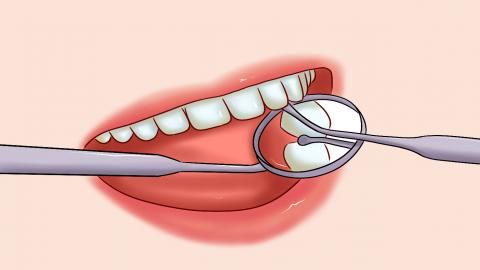What causes a bland and tasteless mouth during the third month of pregnancy, and what should be done about it?
Generally, a bland or tasteless sensation in the mouth during the first three months of pregnancy may be caused by hormonal changes, reduced taste sensitivity, indigestion during pregnancy, vitamin deficiencies, or gestational gastritis. It is recommended to seek medical advice promptly, identify the underlying cause, and improve the condition through safe measures under a doctor's guidance. Specific explanations are as follows:

1. Hormonal changes: In early pregnancy, a sharp rise in estrogen and progesterone levels can affect saliva secretion and taste nerves, leading to a diminished sense of taste. Natural seasonings such as lemon juice or tomato juice can be moderately added to meals. Avoid overly salty or sweet foods, and eat small, frequent meals to reduce gastrointestinal burden.
2. Reduced taste sensitivity: During pregnancy, taste receptor function may be suppressed, weakening perception of sour, sweet, bitter, and salty flavors, resulting in a bland sensation. Consuming pleasantly sour-sweet foods like smoked plums or pickled plums can stimulate taste buds. Maintain good oral hygiene and rinse the mouth with warm water after meals.
3. Indigestion during pregnancy: Slowed gastrointestinal motility causes food retention, leading to poor appetite and altered taste. Walking for 15 minutes after meals can aid digestion. Take medications such as Bacillus subtilis and Enterococcus faecalis viable granules, Bifidobacterium triple viable capsules, or Lactobacillus sporogenes viable capsules as directed by a physician to regulate intestinal flora.
4. Vitamin deficiency: Deficiency in B-complex vitamins can impair taste function, causing a bland feeling in the mouth. Increase intake of lean meat, eggs, and dark green vegetables to supplement vitamins. If necessary, take supplements such as compound vitamin B tablets, vitamin B6 tablets, or folic acid tablets under medical supervision.
5. Gestational gastritis: Inflammation caused by congestion and edema of the gastric mucosa during pregnancy can affect digestive juice secretion, leading to taste disturbances. Eat soft, easily digestible foods and avoid spicy or irritating foods. As prescribed by a doctor, take medications such as hydrotalcite chewable tablets, compound aluminum hydroxide tablets, or vitamin B12 tablets to protect the gastric lining.
Maintain adequate sleep and avoid staying up late, which could worsen physical discomfort. Stay in a positive mood and relieve prenatal anxiety through activities such as listening to music or walking. Attend regular prenatal checkups, promptly report any bodily changes to your doctor, and ensure the health of both mother and baby.







